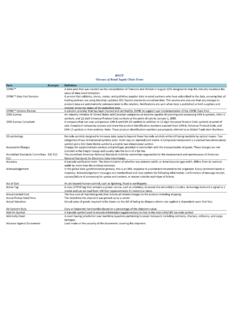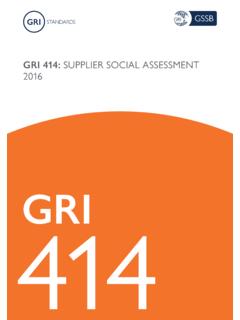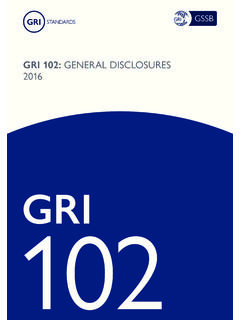Transcription of The supply of unlicensed medicinal products (“specials”)
1 1 The supply of unlicensed medicinal products ( specials ) MHRA Guidance Note 14 1 The supply of unlicensed medicinal products ( specials ) Crown Copyright 2014 Previous edition 1972. Revised, 2000, 2005, 2006, 2007 and 2008 MHRA 151 Buckingham Palace Road London SW1W 9SZ Published by MHRA 2014 Applications for reproduction should be made in writing to: The Copyright Unit Her Majesty s Stationery Office St Clements House 2-16 Colegate Norwich NR3 1BQ 2 The supply of unlicensed medicinal products ( specials ) Contents Page 1 Introduction 3 2 special needs 4 3 Persons authorised to procure specials in the UK 5 4 Manufacture and assembly in the UK 6 5 Importation into the UK 7 6 Distribution 9 7 Advertising 9 8 Obligations on persons who sell or supply 11 9 Export to other EU/EEA Member States 12 10 European Court cases 12 11 Further information 14 12 glossary of legislation 15 Appendix 1 Extract from the Human Medicines Regulations 2012 (SI 2012/1916)
2 17 Appendix 2 Guidance on the hierarchy for the use of unlicensed medicines 20 3 1 Introduction MHRA is responsible for ensuring that medicines and medical devices work, are safe and of an appropriate quality. MHRA s primary aim is to safeguard public health through a system of regulation. Pharmaceutical manufacturers and distributors operating in the UK marketplace are subject to a system of licensing and inspection, which ensures that licensed medicinal products conform to internationally-agreed standards, and that those medicines are manufactured, stored and distributed in compliance with the required regulatory standards.
3 The regulation of medicines on the UK market is undertaken by MHRA in accordance with the Human Medicines Regulations 2012 (SI 2012/1916). This Guidance Note provides advice on the manufacture, importation, distribution and supply of unlicensed medicinal products for human use (commonly described as specials ) which have been specially manufactured or imported to the order of a doctor, dentist, nurse independent prescriber, pharmacist independent prescriber or supplementary prescriber for the treatment of individual patients. Unless exempt, a medicinal product must be the subject of a marketing authorisation or product licence before being placed on the market.
4 Regulation 167 of the Human Medicines Regulations 2012 (see Appendix 1) provides an exemption from the need for a marketing authorisation for a medicinal product which is supplied: in response to an unsolicited order; manufactured and assembled in accordance with the specification of a person who is a doctor, dentist, nurse independent prescriber, pharmacist independent prescriber or supplementary prescriber; for use by a patient for whose treatment that person is directly responsible in order to fulfil the special needs of that patient; and meets the conditions specified in regulation 167(2)-(8).
5 In the interest of public health the exemption is narrowly drawn because these products , unlike licensed medicinal products , may not have been assessed by the Licensing Authority against the criteria of safety, quality and efficacy. The exemption and this guidance does not apply to other unlicensed medicinal products , for example: unlicensed herbal remedies supplied under regulation 3(6) of the Human Medicines Regulations 2012; unlicensed homoeopathic medicines (prepared in a pharmacy); investigational medicinal products ; intermediate products intended for further processing by an authorised manufacturer; medicinal products for export to countries outside of the European Economic Area; products prepared in a pharmacy under regulation 4 of the Human Medicines Regulations 2012.
6 4 products prepared by a doctor or dentist under regulation 3(5) of the Human Medicines Regulations 2012; repackaging licensed products for their authorised use; reconstituted IV additives and CIVAS products (prepared in a pharmacy); products supplied for compassionate use in accordance with Article 83 of Regulation (EC) 726/2004 ; temporarily-authorised medicinal products supplied in response to the spread of pathogenic agents, toxins, chemical agents or nuclear radiation any of which could cause harm (in accordance with Article 5(2) of Directive 2001/83/EC). The manufacture and distribution of veterinary unlicensed medicinal products for animal use is subject to separate legislation.
7 Further advice should be sought from the Veterinary Medicines Directorate (VMD) of DEFRA. The Licensing Authority, for the purposes of the Human Medicines Regulations 2012 and this guidance, refers to the UK Ministers1 designated by the Regulations, acting either alone or jointly. MHRA is the Government body set up to discharge the responsibilities of the Licensing Authority, under powers delegated by those Ministers. 2 special needs Regulation 167 of the Human Medicines Regulations 2012 sets out the exemption from the requirement for a medicinal product , placed on the market in the UK to hold a marketing authorisation.
8 This exemption flows from Article 5(1) of Directive 2001/83/EC, which states: A Member State may, in accordance with legislation in force and to fulfil special needs, exclude from the provisions of this Directive medicinal products supplied in response to a bona fide unsolicited order, formulated in accordance with the specifications of an authorised healthcare professional and for use by an individual patient under his direct personal responsibility. An unlicensed medicinal product may only be supplied in order to meet the special needs of an individual patient. An unlicensed medicinal product should not be supplied where an equivalent licensed medicinal product can meet the special needs of the patient.
9 Responsibility for deciding whether an individual patient has special needs which a licensed product cannot meet should be a matter for the doctor, dentist, nurse independent prescriber, pharmacist independent prescriber or supplementary prescriber responsible for the patient s care. Examples of special needs include an intolerance or allergy to a particular ingredient, or an inability to ingest solid oral dosage forms. These examples are not exhaustive. 1 The Secretary of State and the Minister for Health, Social Services and Public Safety.
10 5 The requirement for a special need relates to the special clinical needs of the individual patient. It does not include reasons of cost, convenience or operational needs (see Section 10 of this guide). Anyone supplying an unlicensed medicinal product , where an equivalent licensed medicinal product is available must be satisfied as to the existence of a special need for the unlicensed medicinal product . MHRA expects that documentary evidence of this special need should be obtained by manufacturers, importers or distributors and that this evidence should be made available on request of the Licensing Authority.














